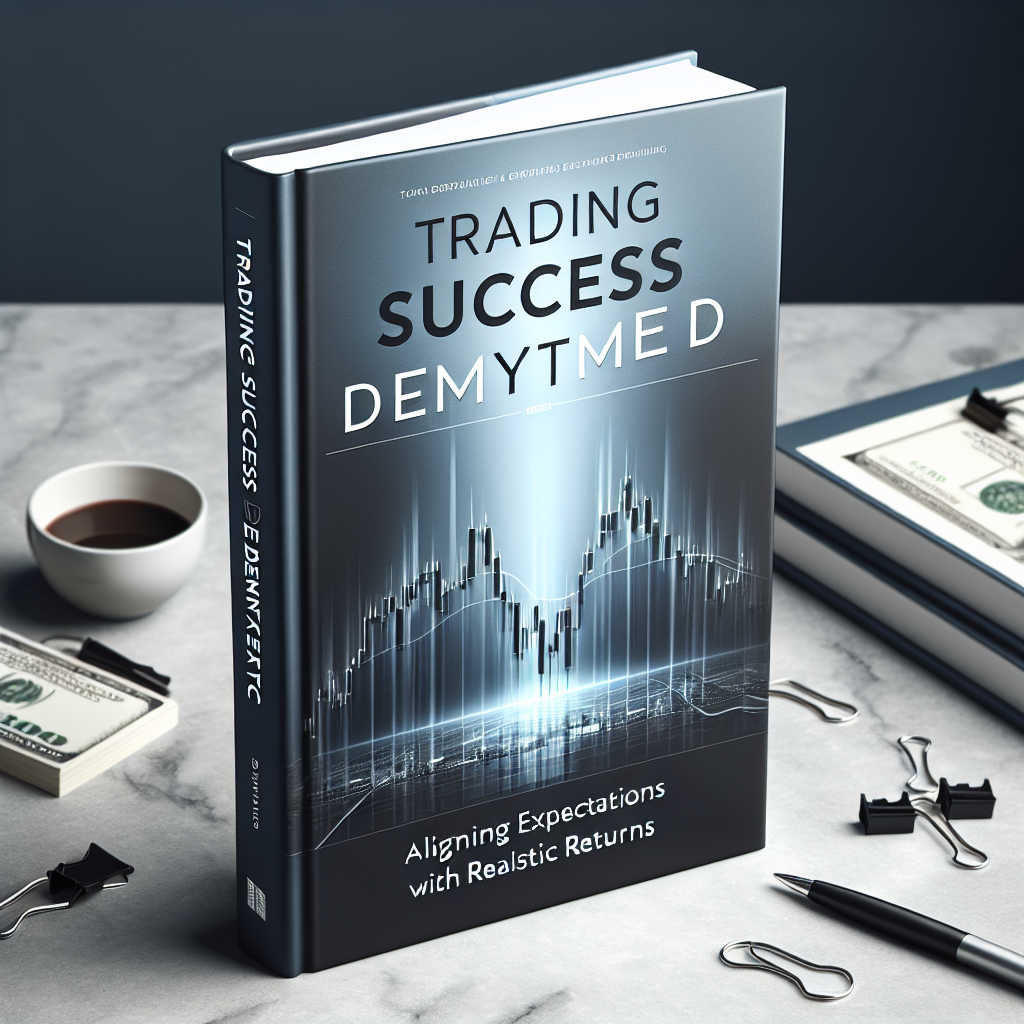Realistic Trading Returns vs Expectations
In the world of trading, the pursuit of financial independence and generational wealth is often clouded by unrealistic expectations. Sensationalized promises of exponential returns have significantly skewed perceptions, leaving new traders disillusioned once reality sets in. Addressing these distorted expectations is essential for ensuring a sustainable and pragmatic approach to trading.
The Myth of “Get Rich Quick”
One of the recurring themes in trading is the allure of quick riches. Hordes of trading “gurus” peddle the idea of making 20%, 30%, or even 50% returns per month, captivating the masses with flashy displays of wealth – luxury cars, extravagant vacations, and lavish lifestyles. However, as Udo Depic, the founder of Skypex Trading Academy, aptly noted in a recent podcast episode, “Trading isn’t about chasing impossible monthly returns; it’s about building sustainable wealth over time.”
The truth is simpler but far less glamorous. Professional traders, including seasoned fund managers overseeing billions of dollars, are content with annual returns of 10–15%. A 20% annual return is considered exceptional by industry standards. For everyday individuals new to trading, adopting these realistic benchmarks can significantly reduce stress and increase long-term success.
The Importance of Starting Small
A common misconception among new traders is the assumption that a large sum of money is required to succeed in trading. While having a larger capital pool can accelerate growth, it isn’t a prerequisite for starting. As Udo explained, “You can start trading with $100 or $200. The timeframe to reach bigger goals may be longer, but the journey is entirely possible.”
For beginners, starting small has two key benefits:
1. Minimizing Risk: With less money on the line, losses are manageable and less likely to create financial hardship.
2. Building Knowledge: Trading isn’t just about transactions – it’s about understanding markets, learning strategies, and honing discipline. Starting with a smaller balance allows for focused learning without the pressure of large losses.
Udo emphasized the importance of reinvesting profits rather than withdrawing them immediately. Building a trading account to a stable level – whether it’s $10,000, $100,000, or more – before drawing from the profits creates the financial buffer necessary for consistent growth.
Emotional Discipline: A Crucial Factor
New traders often fall into the trap of over-leveraging and making all-or-nothing bets, resulting in catastrophic losses. Sharing his own experience, Udo recounted how his first big trading mistake was putting his entire balance into a single leveraged trade, which evaporated in minutes. “It’s easy to be confident on a demo account or on paper,” he said, “but the real stress comes when your own money is at stake.”
To combat emotional decision-making, Udo advocates for strict risk management. Never risk more than 5–10% of your capital on a single trade, and always have a stop-loss strategy in place to limit potential losses. Emotional discipline isn’t just about avoiding overconfidence – it’s also about sticking to your strategy when trades don’t go as planned. Patience and consistency are the foundation of successful trading.
Unrealistic Expectations Can Burn You
One of the most damaging consequences of unrealistic expectations is feeling burned by early failures. Trading losses, especially in the beginning, can make individuals abandon the craft prematurely. Udo shared a powerful piece of advice for those who experience setbacks: “Learn from your losses. Understand what went wrong and adjust your approach – but don’t give up. Trading is not about perfection; it’s about persistence and continuous learning.”
He warned against falling for “get rich quick” schemes and highlighted a key principle: “If someone promises you 20% or more returns every month, run in the opposite direction. This is an impossible standard to maintain long-term.”
Time Management: The Hidden Skill of Traders
For many aspiring traders, balancing trading with full-time jobs and family obligations can seem daunting. The podcast emphasized the importance of time management as a critical skill. “If you’re serious about trading, you’ll find time for it,” Udo remarked. Whether it’s waking an hour early to study markets or using lunch breaks to read trading insights, small adjustments in daily routines can create space for meaningful progress.
Long-Term vs. Short-Term Mindset
The key takeaway from Skypex’s approach to trading is the importance of cultivating a long-term mindset. Trading should not be treated as a quick escape from financial difficulties; instead, it’s best viewed as a tool for gradual wealth building. Separate your short-term financial needs from your trading activities. As Udo advises, “Your job should cover your basic expenses. Trading profits should fund your extras – luxuries, investments, or future goals – not your rent and bills.”
Final Thoughts
The lure of exponential returns from trading is strong, but understanding the market’s realities is critical to finding success. By setting realistic expectations, starting small, managing risk, and staying committed to learning, traders can build sustainable wealth over time. As Udo so effectively put it, “There’s no elevator to wealth – it’s a slow climb, one step at a time.” Above all else, patience, discipline, and a long-term perspective are the keys to thriving in the trading world.

